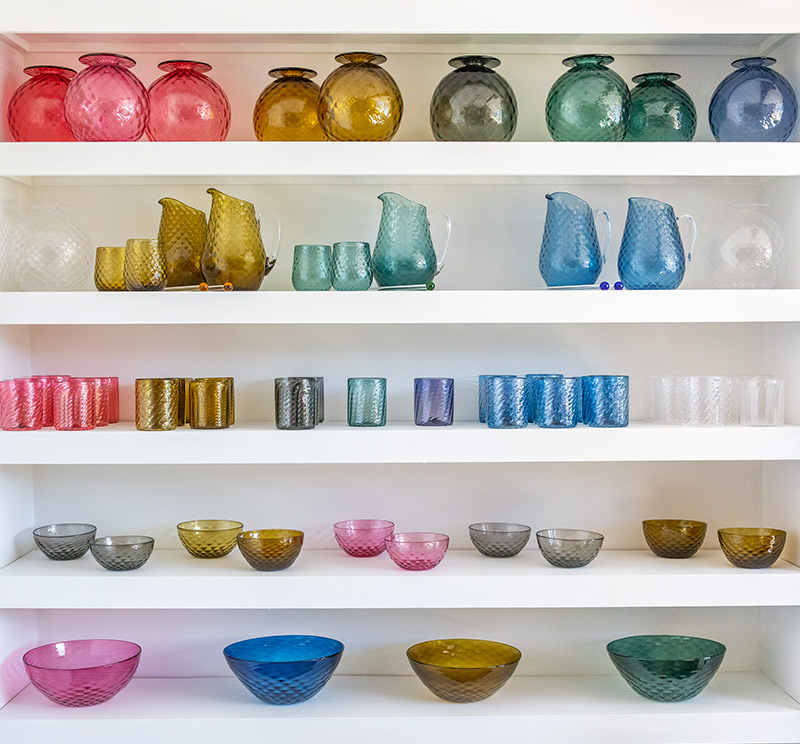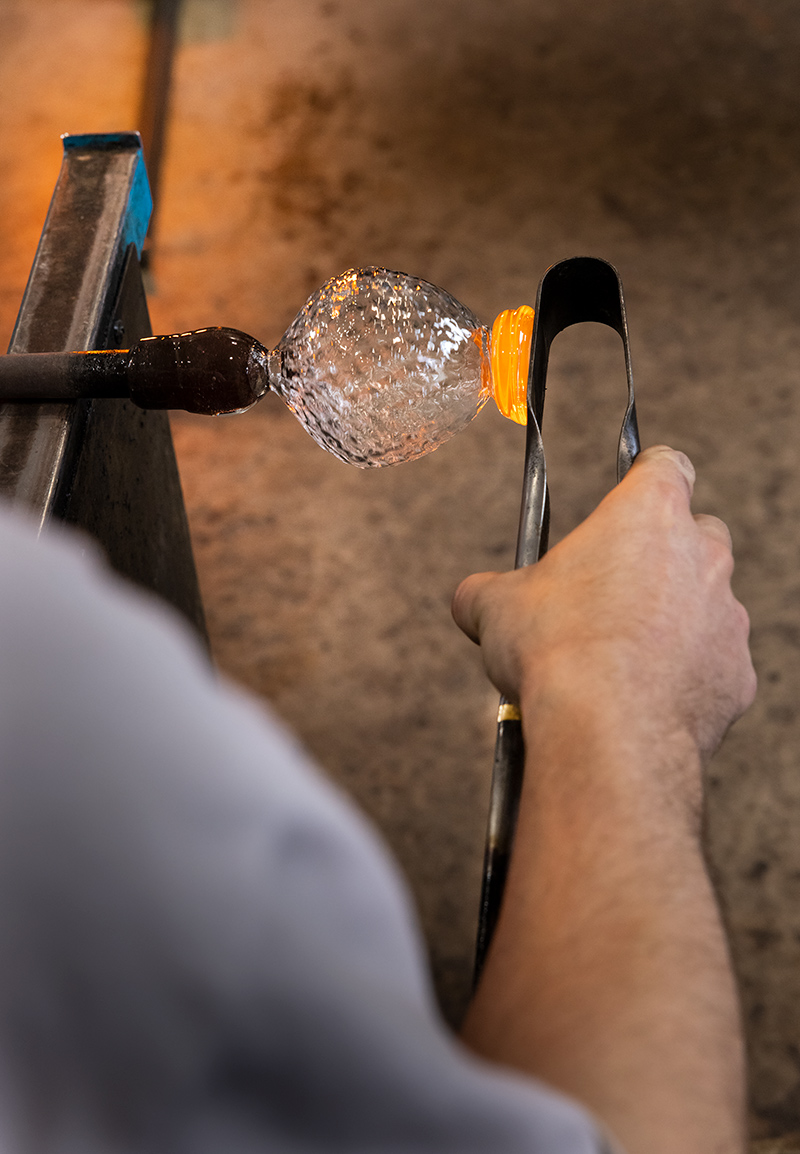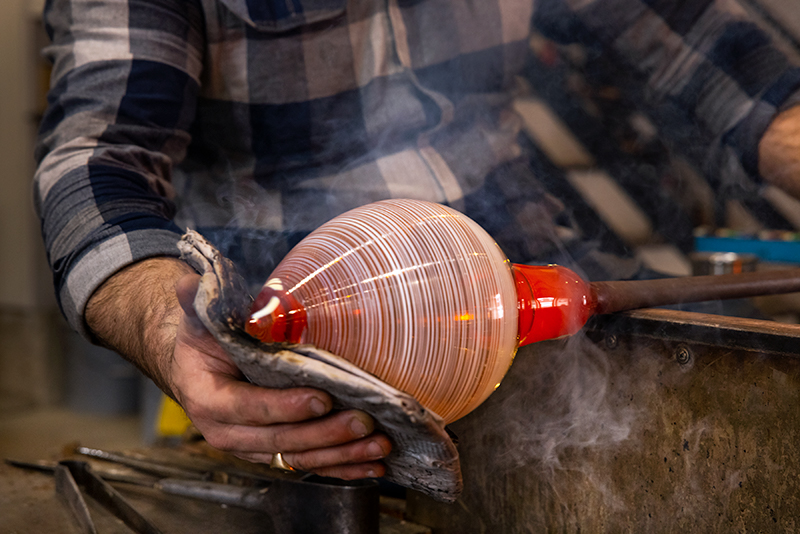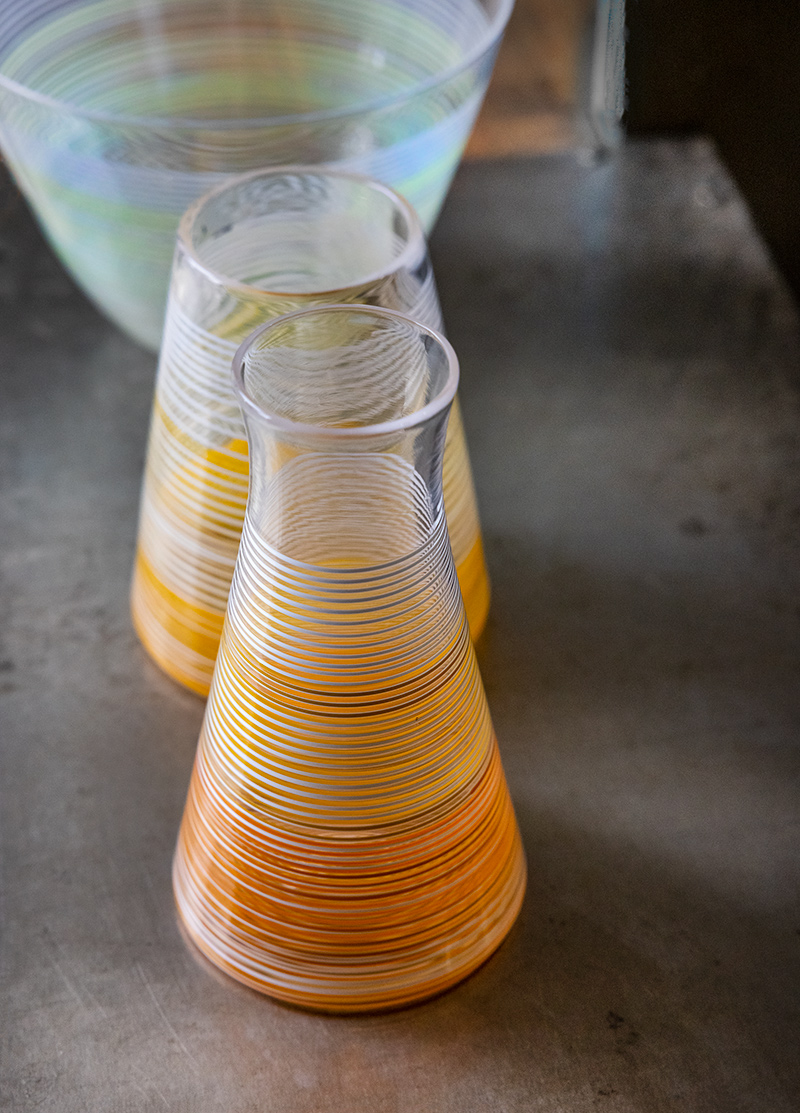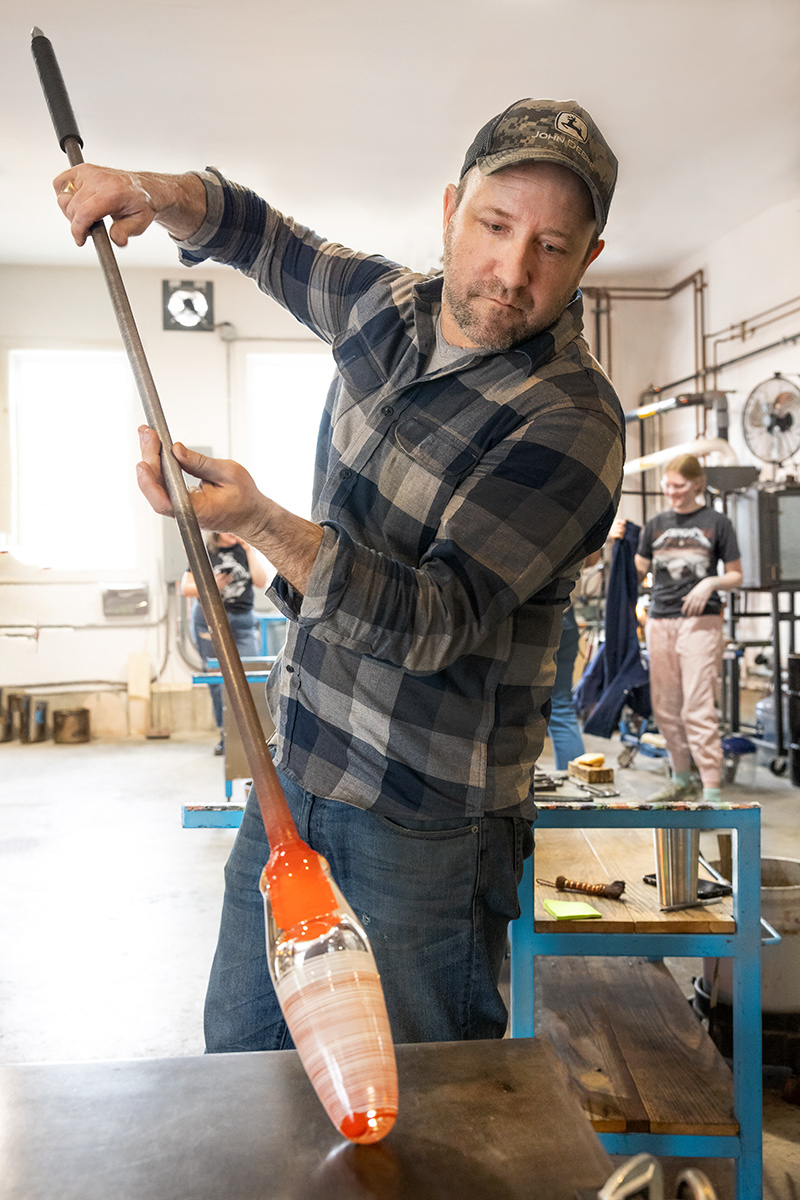Glass is a fickle medium, as anyone who has watched the hit Netflix reality show Blown Away can attest. In an instant, even an expert artisan can lose a piece that was hours or days in the making. Too much heat—or too little—or a tap in the wrong spot, and a once-beautiful object shatters to the floor.
“Whenever you think you have figured something out, glass has a way of reminding you that you are never 100 percent in control,” says James McLeod, who owns the Bubble Factory in Essex, a 6,000-square-foot converted barn devoted to glassblowing and metalwork. “When you challenge yourself to the point where you are not sure if something will make it, there is a physical excitement similar to playing a sport or anything else that requires dexterity and focus.”
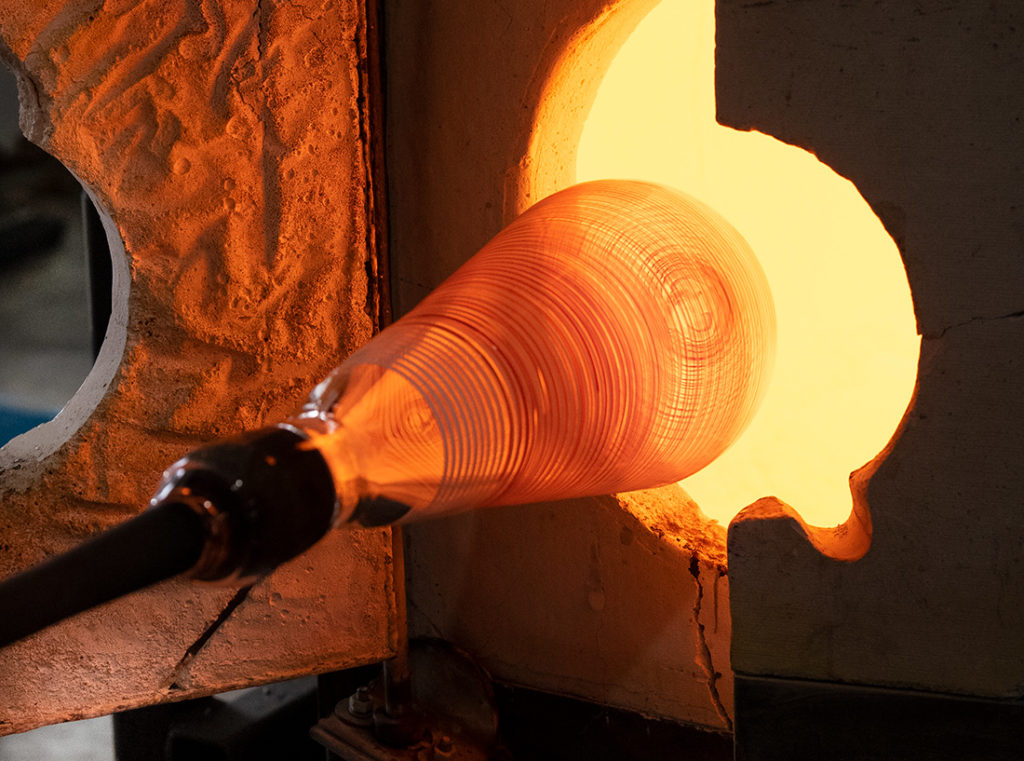
Even just watching a piece being created is thrilling. It starts with “gathering”—sticking a long metal pipe into a furnace full of molten lead-free glass, heated to 2,000 degrees Fahrenheit. The gaffer (a term for the glassblowing artist) dips and twists the pipe, spinning thick, glowing, taffy-like strands onto the end. From there, it’s an intricate dance with the melted glass—it must stay at a temperature of around 1,000 degrees to be pliable, but the soft taffy-like consistency means if the pipe isn’t constantly spinning, gravity will cause the glass to droop and lose its uniform shape. Molten glass is rolled on a metal table called a marver to give it shape and ferried in and out of a “glory hole”—a special furnace intended to help the glass stay hot—until fully formed.
“You have to be very aware at every step in the process,” says Nikki Tsamis, who oversees classes at the Bubble Factory, where, in just a few hours, students can learn to make things like bowls, drinking glasses, and beads. These days, strict social distancing guidelines require everyone in class to wear a mask, and only employees are allowed to blow into the pipes to expand the glass into a bubble. That’s not the only change—since the pandemic, the company has limited both the number of people in each class as well as the number of overall classes. It was a step taken to keep people safe, but with the added benefit of enabling more time for the students and teacher to interact.
When classes, and much of their contract work, was completely paused early in the pandemic, McLeod finally found himself with more time for something else as well: creating fresh designs. The results rolled out at their new subsidiary, CLEOD (pronounced cloud) Glass + Works, which debuted in Rockport last spring, with a second location coming this year in Charleston, South Carolina.
“Everything kind of lined up,” McLeod says, noting that their own line was always a part of the business plan, but demand for teaching classes and fulfilling wholesale accounts always pushed it to the back burner.
The focus for CLEOD Glass + Works is clean lines and pure intention, with a mid-century modern aesthetic in an appealing color palette. Every piece is completely handcrafted, which means no two are exactly alike—and therein lies the charm. “It’s important to us to make everything by hand, continuing the tradition of glassblowing that gets passed down from generation to generation,” McLeod says. “I’ve got 10 people employed right now who love what they do every day. And that’s really good.”
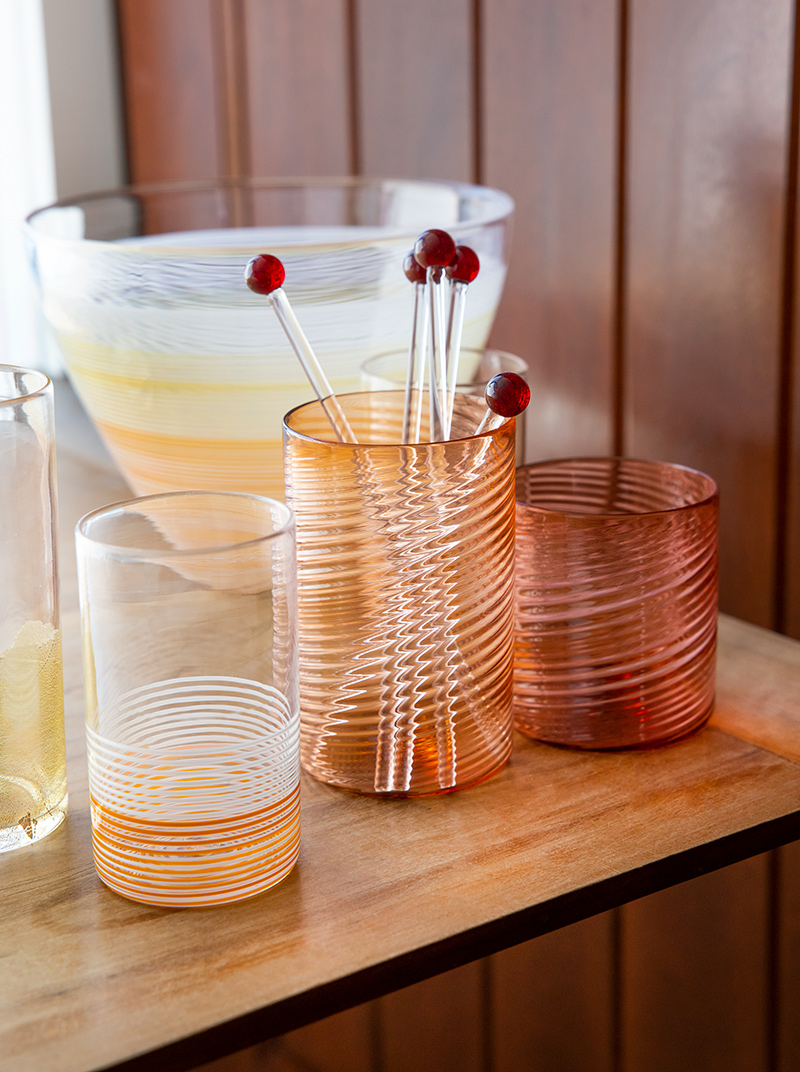
New for Spring 2021, CLEOD has introduced the Racer line, named for the thin spiral of colored glass encircling a clear base. Applying those bands in a uniform way is a slow and painstaking process, but worth it—the result is absolutely eye-catching.
“Pretty much everything we do here, from start to finish, is measured and made fully by the artist by hand,” McLeod says, noting that even something as seemingly simple as a hand-blown pitcher is hard work. The spout needs to line up perfectly with the handle, and be crafted in a very specific way, or the owner will be dribbling lemonade onto the counter instead of into a glass. The thought and attention to exacting detail—all while manipulating a medium heated to 1,000 degrees—takes years to perfect. The resulting piece, while it may just be a vessel for pouring, also speaks to a long history of New England craftsmanship.
“There’s an aura about it,” McLeod says. “Objects we love should be made with love. These are heirloom-quality pieces that you’ll have in your home and use every day.”
69 Choate St., Essex, 978-890-5109, bubblefactoryma.com; CLEOD Glass + Works, 9 Bearskin Neck, Rockport, 978-999-5259, cleodglassworks.com

